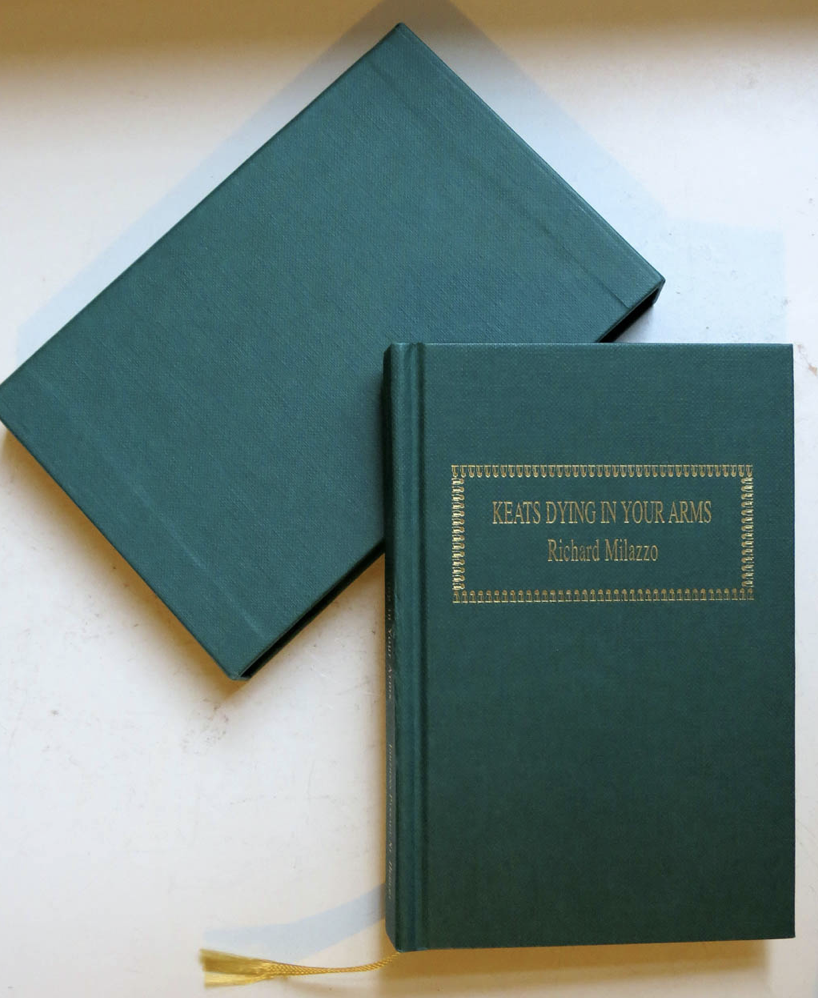Keats Dying in Your Arms: Poems 2007-2008
by Richard Milazzo.
First edition hardback: November 2010.
Designed by Richard Milazzo.
120 pages, with a black and white photograph of the author, Serjilla (City of the Dead), Syria, June 13, 2008, by Joy L. Glass on the frontispiece.
6.5 x 4.75 in., 400 + 100 with slipcase, printed, sewn and bound in Brussels, Beligum.
ISBN: 1-893207-32-3.
Published by Éditions Passage St.-Hubert, Brussels, Belgium, 2010.
RETAIL PRICE: $40.00 / $50.00 (slipcase edition) (includes postage and handling)
Keats Dying in Your Arms: Poems 2007-2008 by Richard Milazzo was written in Jacksonville (Florida), Havana (Cuba), Palermo (Sicily), Santa Monica (CA), Basel, Venice, but mostly in Kracow and Warsaw, Poland. While it is, in part, a sorrowful book, indeed, sometimes mournful in tone, where it considers the events of World War II in Poland, there is also what could be described as a redemptive erotic undertone that finds its way into the writing as the poet travels from place to place.
Keats Dying in Your Arms is perhaps one of the author’s most personal and revealing books, trying as it does to reciprocate the cruelties of life and the cycle of mortality with caresses hardly rendered and hardly felt, and that have absolutely no chance of surviving what is often the horror of the human condition. But the poems are unrelenting, nonetheless, in the way they seek out, and sometimes find, absolution in the smallest details that can often go by unnoticed or in abstract lyrical gestures that would embrace the world at its most sublime and even at its lowest depths. In the poem “Vistula,” the poet writes: “On the banks of my hips and thighs / you have lain, and lied / to me and to yourself / about the beauty of the world, // even as you were simply resting / from your exploits, from the truth / of your brutality, and even as I felt / the limbs of your trees, // like black tongues, / burrowing into the gray void of the sky, / and dissolving with the wind / like black smoke.” And in “The Ash Pond,” he writes: “There are ponds of ash / from which no phoenix can rise – / and should it rise ever despite the flames / and the black smoke, // it shall not burgeon on the wings / of histories buried nor blossom / on wings of forgiveness extended / nor fall back to earth in tears of rain. // Its wings shall beat to rhythms / unheard of before in the heart and plummet / to depths of sorrow and despair unencompassable / by cloud and sky and soul’s extent.”

